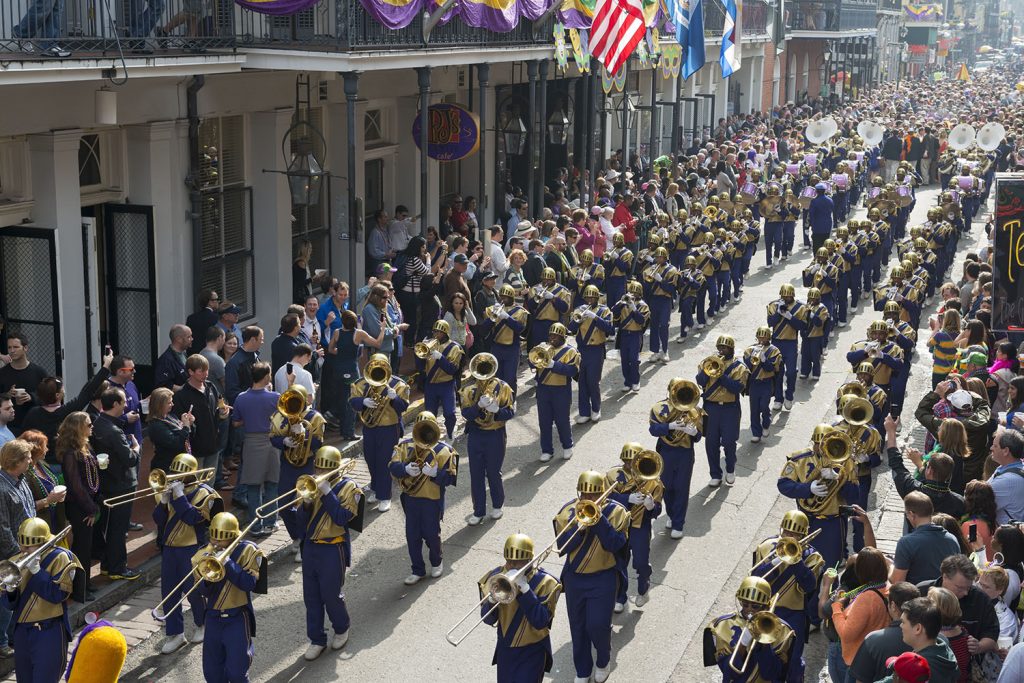The Best Music Streaming Services for Audiophiles
Where to go for hi-res audio.
Almost ten years ago, TIDAL became the first streaming music service to offer music encoded with lossless compression. For those with keen enough ears to notice the reduction of quality inherent in music that utilizes a “lossy” codec like MP3 or AAC, this was a significant breakthrough.
These days, most streaming music services offer lossless options. Some charge more for the privilege, while others make it available in all their paid plans. Here’s a guide to the lossless options available out there.
Lossless vs. Lossy
The tricky part of streaming high-res files is that the better the quality (that is the higher the bit resolution and sampling rate), the bigger the file size and the faster the internet download speed required. Completely uncompressed audio at CD quality (16-bit/44.1 kHz) and better (24-bit/48 kHz up to 352.8 kHz) results in audio files that are too large to stream easily.
A codec (short for code/decode) algorithm is used to shrink digital audio files. Lossy codecs discard some audio information in order to accomplish that goal, while lossless codecs reduce file size without removing any data.
Though they provide lesser sound quality, lossy codecs are better at decreasing file size. An MP3 can often shrink a WAV file by 90 percent. Lossless codecs like FLAC (short for Free Lossless Audio Codec) ren’t able to cut the file size as much but still can shrink down a WAV file by 50 to 70 percent.
Many of the music services offer some content at 24-bit/192 kHz, which requires approximately 9216 kbps (9.216 megabits per second, or Mpbs for short) to stream in what we perceive as “real” time. The rule of thumb is that your internet download speed should be about twice the size of the most data-intensive files you’re streaming, or you might have issues. So with 9.216 Mbps files, you’d need about 20 Mbps or faster download speed.
For context, CD quality (16-bit/44.1 kHz audio) audio gets streamed at 1411 kbps — something that even a relatively slow connection of 3 Mbps or so can handle. (If you’re wondering about the speed of your internet connection, plenty of free browser-based speed tests are available online.)
Quality
Lossless high-res offerings vary in quality from one service to the next, but they all sound significantly better than compressed formats like MP3 or M4A. Here are the main differences between popular streaming services:
- Amazon Music Unlimited’s premium plan offers up to 24-bit/192 kHz FLAC files.
- Both Qobuz subscription levels (Studio and Sublime) provide 24-bit FLAC files, with sampling rates ranging from 48 kHz to 192 kHz.
- Apple Music® uses its proprietary lossless codec called ALAC (short for Apple Lossless Audio Codec). The songs available on the service run the gamut from 16-bit/44.1 kHz to 24-bit/192 kHz.
- The Premium plan from Deezer provides music files at CD quality.
- The classical-only streaming service Idagio also provides CD-quality audio.
- TIDAL’s Hi-Fi Plus service is its most expensive tier. Many of the songs it makes available are from the TIDAL Masters catalog. They were encoded with a proprietary system from a company called MQA (Master Quality Authenticated) and range from 26-bit/48 kHz to 24-bit/352.8 kHz.
You may be surprised that Spotify® hasn’t yet entered the lossless streaming space. Although it’s an industry leader in many ways, its high-res tier has long been under development but isn’t yet available.
Library Size
The capability to stream in high resolution is only advantageous if the streaming service offers a comprehensive selection of lossless files. The good news is that each of the services covered here offer millions of lossless songs. However, some services are vague regarding the percentage of their catalogs that are at their highest quality levels.
- Amazon Music Unlimited features over 100 million total songs, with 50 million of them lossless. On its website, it says that “millions” of the latter are “Ultra-HD,” which Amazon defines as “better than CD-quality audio (up to 24-bit/192 kHz).”
- Qobuz also offers more than a 100 million songs; however, only those streamed via the Qobuz Studio and Qobuz Sublime services are 24-bit.
- Apple Music announced that its catalog exceeded 100 million songs in October 2022.
- Deezer’s catalog contains 90 million songs, all CD quality (16-bit/44.1 kHz).
- Idagio’s entire library of some two million classical pieces is also CD quality.
- TIDAL’s Hi-Fi Plus service offers more than 100 million hi-res songs.
Offline Listening
When listening to high-res files, the ability to listen offline is important because you may find yourself in situations where you don’t have Wi-Fi and therefore can’t stream large files. The workaround is to download files to your device in advance. All the services covered here offer a download option.
Most also let you purchase the files you download. The advantage is that you’ll still be able to access them should you cancel your subscription at some point.
Additional Content
All the services mentioned here include music videos. Most also provide podcasts, although Apple recommends using its free Podcasts app, which offers a much larger variety.
Deezer is the only service that offers scrolling lyrics, synced to playback, for most of its songs. In addition, it gives you a free app called SongCatcher that can identify any music you hear elsewhere or that you sing or hum into your device’s microphone.
Classical music fans will be intrigued by Idagio’s Premium+ Concerts plan because it gives them access to the site’s lossless catalog as well as a selection of live and recorded concerts.
Which Streaming Site?
Audiophiles have plenty of options when it comes to streaming in high-res. Most of the services mentioned here offer 30-day free trials. After finding the most appealing feature set, you can use the trial period to audition your choice before committing to a subscription.
Here’s a table that compares and contrasts the different high-res options offered by various services:
| Streaming Service | Free Trial | Cost per Month | Number of Songs | Audio Format and Quality | Other Content | Listen Offline | Purchase Music |
| Amazon Music Unlimited | 30 days | Student $5.99, Individual $10.99, Family $14.99 | Over 100 million | FLAC: 16/44.1 kHz up to 24/192 kHz | Podcasts, Videos | Yes | No |
| Qubuz Studio | 1 month | Solo $10.83, Duo $14.99, Family $17.99 | Over 100 million | FLAC: 24-Bit up to 192 kHz | Music -Related Articles and videos | Yes | Yes: 320kbps/128kbps lossy MP3 files to 24-bit/192kHz quality FLAC files |
| Qobuz Sublime | No | Solo $14.99, Duo $22.49, Family $29.16 | Over 100 million | FLAC: 24-Bit up to 192 kHz | Music related articles and videos | Yes | 60% discount |
| Apple Music | 1 month (when bundled with up to five services) | Student $5.99, Individual $10.99, Family $16.99 | Over 100 million | ALAC: 24/48 kHz lossless up to 24/192 kHz | Videos and some Podcasts | Yes | Yes: (CD quality and high res lossless) |
| Deezer Premium | 1 month | Individual $11.99, Family 19.99 | Over 90 million | FLAC: 16-bit, 44.1 kHz | Podcasts, videos, Song Lyrics, Song Catcher | Yes | No |
| Idagio Premium | 14 days | Individual €12.99, Add on video €3.68 | 2 million (Classical only) | FLAC: 16-bit, 44.1 kHz | Videos | Yes | No |
| TIDAL | 30 days | Individual $10.99, Family $16.99, Student $5.49, Add on DJ extension $9.00 | Over 100 million | FLAC: 16-bit, 44.1 kHz, MQA: Up to 24-bit, 352.8 kHz | Podcasts, Videos | Yes | Yes |















